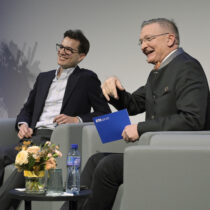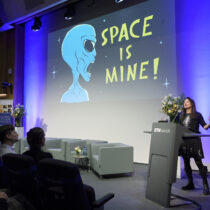As If Human: Living in the Age of Intelligent Machines
November 7, 2024In discussing the recent leap forward in artificial intelligence based on large language models like ChatGPT, the general public seems to divide itself people into two groups: those excitedly looking forward to applying it to their lives and in their work, who see it as a tool for making life easier; and those who are afraid that AI will make their and too many other people’s jobs obsolete. Both have good points.
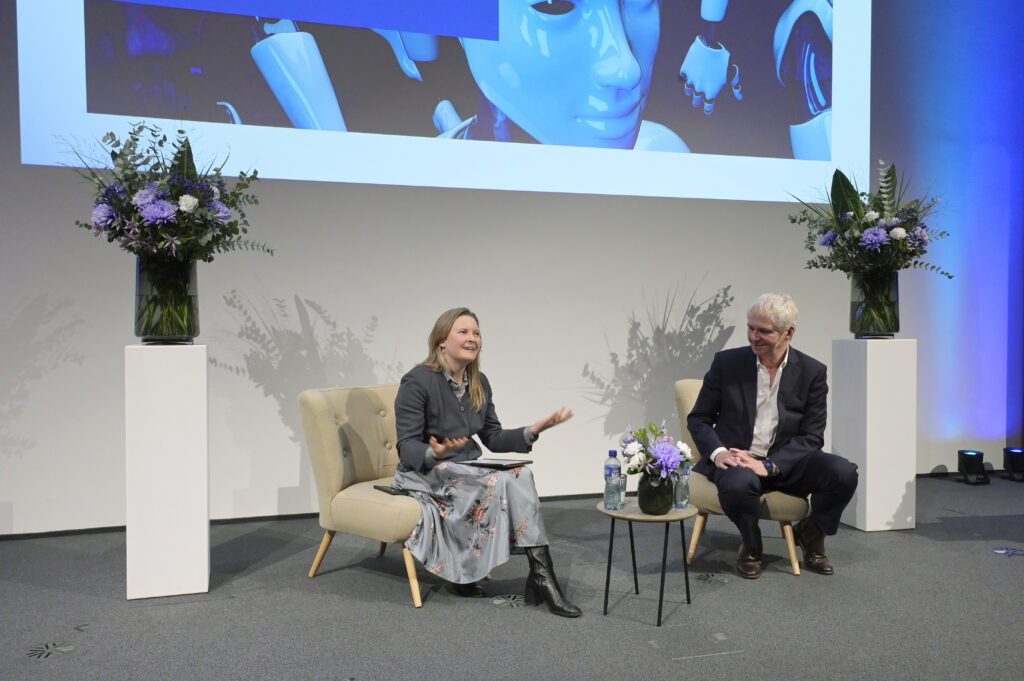
Which is why one focus of the work of Sir Nigel Shadbolt, leading researcher in Artificial Intelligence (AI) and Professorial Research Fellow in Computer Science at the University of Oxford, is to think about ways to take full advantage of the first, which can help in avoiding the second. By making sure that the continued development of technologies like AI are accompanied by ethical thinking, not just driven by financial gain.
Shadbolt recently sat down with Margarita Boenig-Liptsin, Professor for Ethics, Technology and Society in the Department of Humanities, and Social and Political Sciences at ETH Zürich for a discussion about ethics and artificial intelligence as part of the ETH Global Lecture Series.
Boenig-Liptsin starts off by asking him how we need to be thinking about technology and society in our world.
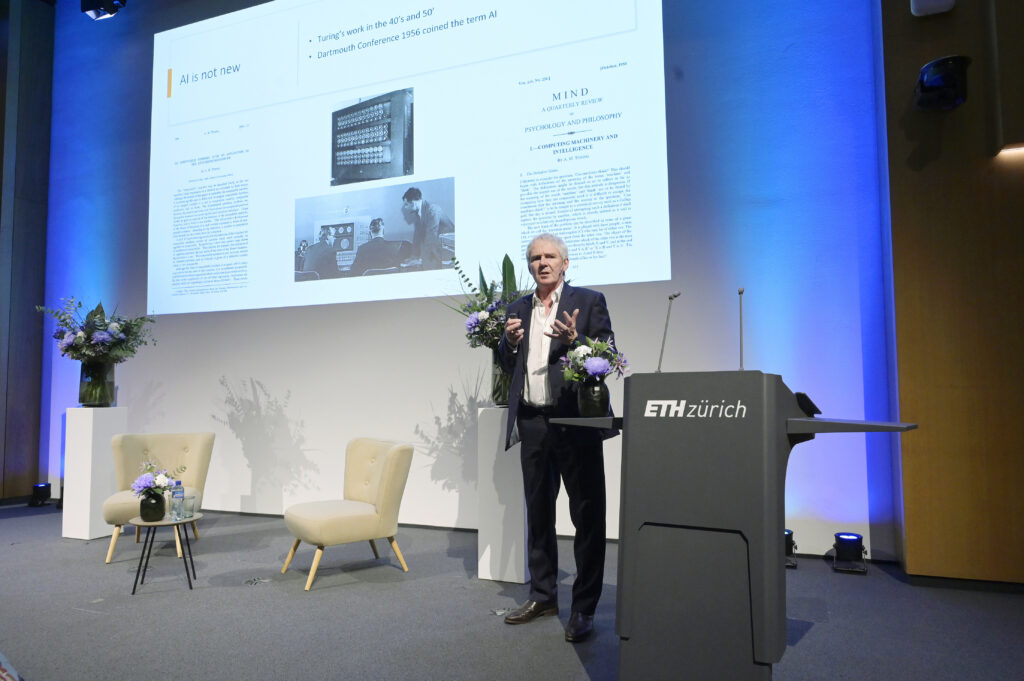
Shadbolt identifies the main challenge: nation states aren’t necessarily the prime movers any longer; private companies have a great deal of power in this area. But while some will adopt Facebook’s original “move-fast-and-break-things” approach, others may take more reflective approach – and once they each see how the market responds, we’ll “have a whole set of complexities around how we might regulate how we align incentives and how we educate our about the dangers,” he says.
Another challenge Shadbolt touches on during the discussion is that at the going rate, as a recent study theorises, we will soon run out of data to feed models. While some think that AI could just generate the needed data, the “curse of recursion”, he points out, is that the end result would not be coherent, resulting in a risk of model collapse. It is therefore important that both the feedstock and the data infrastructure be of high quality.
So how do we approach the future when significant challenges like this have already arrived or are looming? In addition to incentivising governments and business to focus on ethical AI, the answer will certainly also lie in how those creating future technologies or working on the continued development of existing ones see their role in this issue.
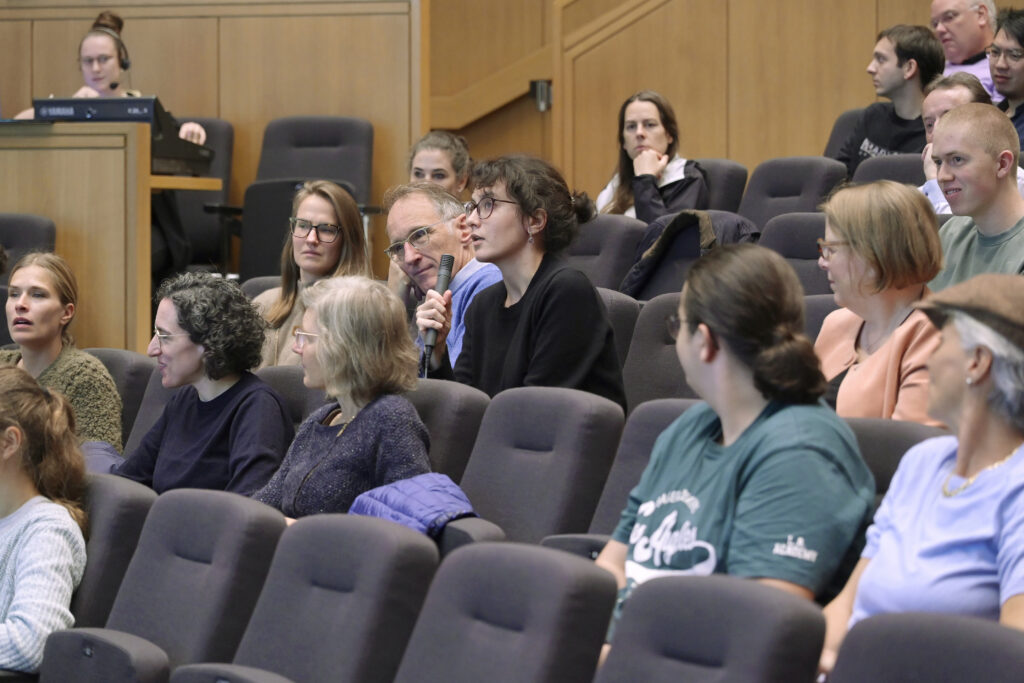
At least in the ETH auditorium where this Global Lecture is taking place, things look optimistic. Those in the audience joining the discussion identify themselves as engineering and computer science students, and the majority of their questions for Shadbolt indicate that ethics are already an integrated aspect in their dealings with AI:
- How can we as students shape the age of intelligent machines responsibly? (Answer: Be aware that you have a duty of care, try to hold yourself and the organisations you work for to account, and don’t fall victim to a dystopian trope – what you create might be a future solution to a current problem in a way you are not aware of yet.)
- How do you get rid of AI hallucination? (Answer: You currently can’t. Today’s best models have a 2% rate. What you need to do is ensure that AI output is always checked by a human with the corresponding expertise.)
- How we can know whether we are interacting with a human or an AI bot? (Answer: We shouldn’t have to ask.)
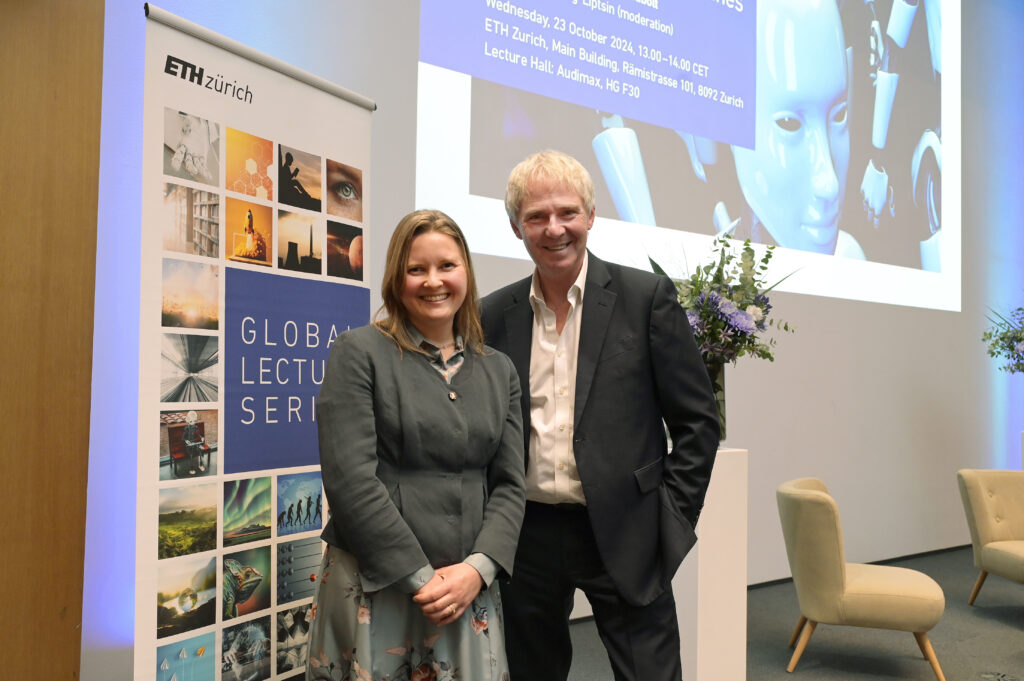
As for the rest of us, during his introductory presentation, Shadbolt assures the more fearful members of the audience: “We won’t lose all of our jobs, despite some claims to the contrary […] because humans are extraordinarily ingenious at finding new things to pay us to do.”
So when you’re feeling, as I often have for the past 20 years, like the last monk in a 15th-century monastery, still hard at work detailing illuminated manuscripts by hand to the sound of the neighbour’s Gutenberg printing press pounding out books by the hundreds next door: take comfort in Sir Nigel Shadbolt’s view of the future. Even though AI chess is possible, we still play it on physical boards with real pieces and humans that are right there across from us. And we have been entangled with our own inventions for millions of years: Our Australopithecine ancestors made tools during the Palaeolithic Age, and since then we have learned to use each new invention to make our lives easier.
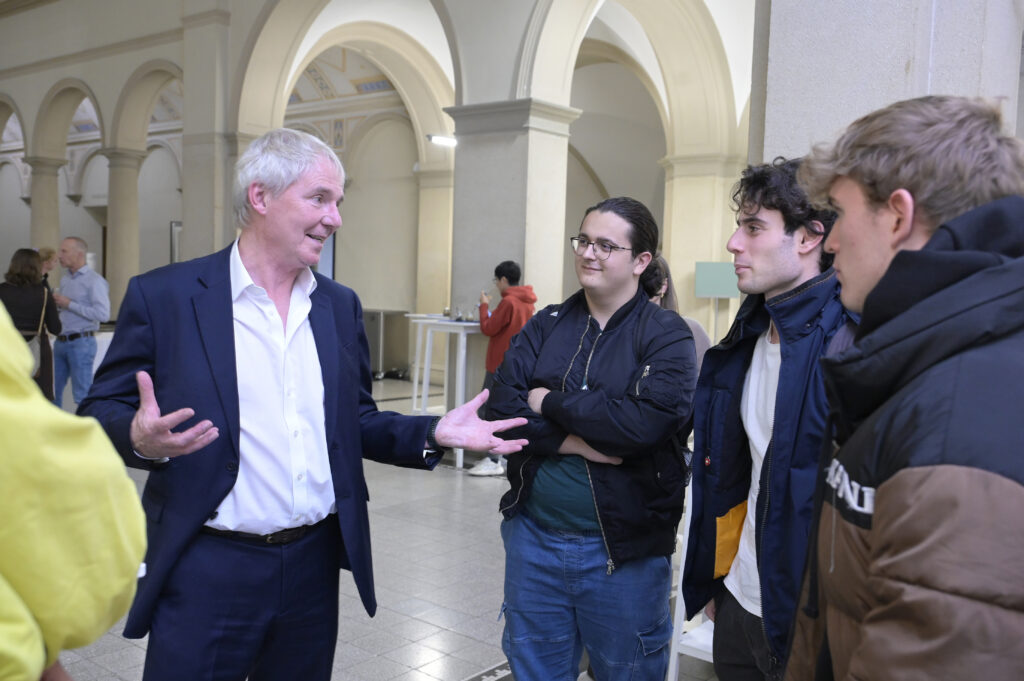
“We won’t lose all of our jobs, despite some claims to the contrary,” Shadbolt says, “because humans are extraordinarily ingenious at finding new things to pay us to do.” What we need to do is adapt.
Watch the full recording:
Find out more about our ETH Global Lecture Series here.



